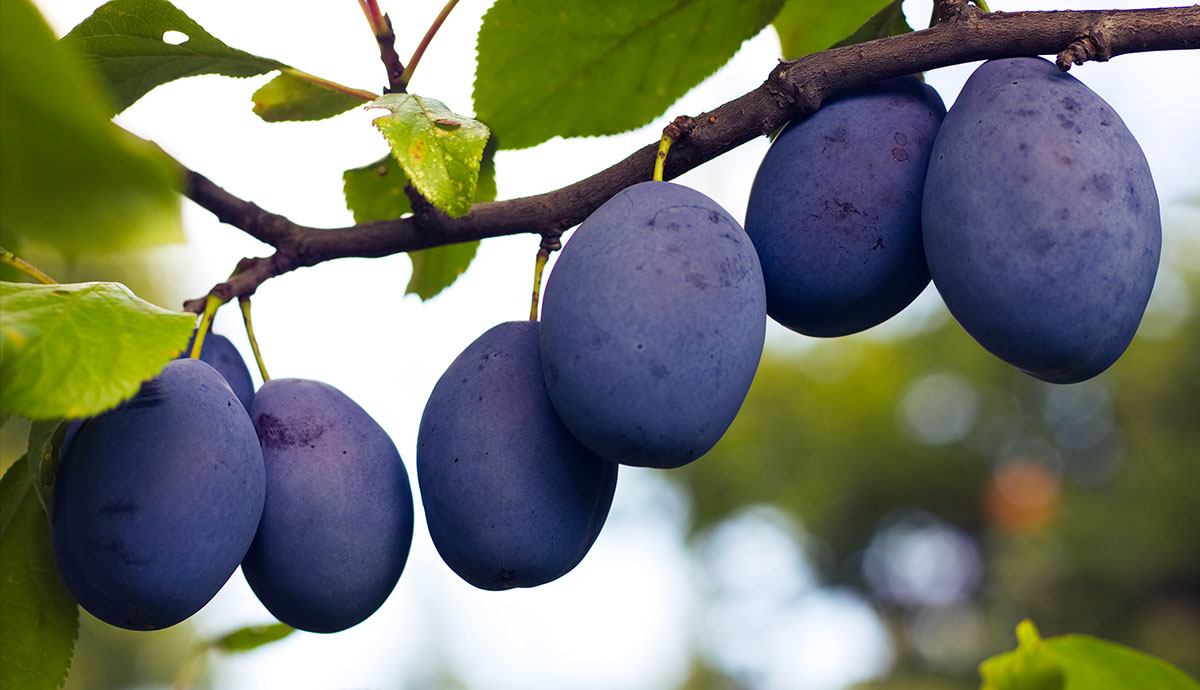January 19, 2018
The colour purple - do plums pack a positive punch for better health?
An IHMRI study is trialling the benefits of plum juice to protect against age-related diseases
Illawarra Health and Medical Research Institute (IHMRI) researchers are conducting a clinical study into the potential benefits of Queen Garnet Plum juice on blood pressure and memory.The juice from this plum variety has been found to contain a substantial amount of naturally occurring anthocyanins or antioxidants.
Anthocyanins are compounds found naturally in fruits and vegetables that are blue and red in colour like plums and blueberries. Research suggests they could protect against age-related diseases like cancer, heart disease and brain function. They’ve also been found to improve gut health which plays an important role in overall wellbeing.
IHMRI Nutritionist, Associate Professor Karen Charlton from UOW’s School of Medicine says the nectar from the Queen Garnet Plum could prove a simple way for Australians to help reduce their risk of heart disease.
“As a nutritionist, it’s exciting to discover the untapped healing potential of fruits and vegetables that could be used to fight common conditions like high blood pressure and memory loss,” said Professor Karen Charlton.
“Science is constantly discovering new functions for the many bioactive compounds found in fruits and vegetables, and we are at the forefront of this work,” she said.
The secret to the Queen Garnet Plum is its very high anthocyanin content which has about double the levels found in regular plums. The Queen Garnet Plum was bred by Queensland Government scientists over a decade ago and is characterised by a deep purple colour.
The research is being conducted by IHMRI staff and students from UOW’s School of Medicine. It’s a collaborative effort with the Queensland Alliance for Agriculture and Food Innovation.
The study is investigating the effect of consuming fruit juice high in anthocyanins, on blood pressure, memory and cognition and the gut microbiota population in generally healthy older adults.
As part of the trial, participants are fitted with 24 hour blood pressure monitors and taken through a series of cognitive assessments before receiving different fruit juices to consume daily for 16 weeks.
Urine samples are tested at regular intervals before and after the juice is consumed to see how quickly it is being metabolised by the body.
Associate Professor Steven Roodenrys from UOW’s School of Psychology is also working on the project along with PhD students Ezinne Korie and Vinicus de Rosario.
About IHMRI
The Illawarra Health and Medical Research Institute is a not-for-profit charity that connects scientists with medical practitioners. Our researchers span many academic and clinical disciplines. They work together to understand, diagnose, treat and prevent disease and illness.
We also support clinical research studies and commercial clinical trials to test new treatments and devices.
Established in 2008 by the University of Wollongong and the Illawarra Shoalhaven Local Health District, we are now recognised as an independent Medical Research Institute (MRI)—the first and only one of its kind in the Illawarra.
